Ardor 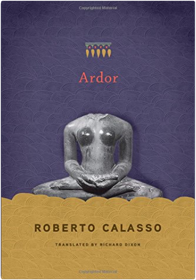 In this revelatory volume, Roberto Calasso, whom The Paris Review has called “a literary institution,” explores the ancient texts known as the Vedas. Little is known about the Vedic people, who lived more than three thousand years ago in northern India: They left behind almost no objects, images, or ruins. They created no empires. Even the soma, the likely hallucinogenic plant that appears at the center of some of their rituals, has not been identified with any certainty. Only a “Parthenon of words” remains: verses and formulations suggesting a daring understanding of life. “If the Vedic people had been asked why they did not build cities,” writes Calasso, “they could have replied: we did not seek power, but rapture.” This is the ardor of the Vedic world, a burning intensity that is always present, both in the mind and in the cosmos. With his signature erudition and profound sense of the past, Calasso explores the enigmatic web of ritual and myth that defines the Vedas. Often at odds with modern thought, these texts illuminate the nature of consciousness more vividly than anything else has managed to till now. Following the “hundred paths” of the Śatapatha Brāhmaņa, an impressive exegesis of Vedic ritual, Ardor indicates that it may be possible to reach what is closest by passing through that which is most remote, as “the whole of Vedic India was an attempt to think further.” The Art of the Publisher 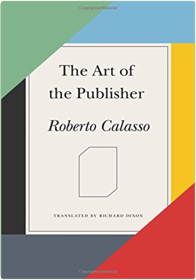 In this fascinating memoir, the author and publisher Roberto Calasso meditates on the art of book publishing. Recalling the beginnings of Adelphi in the 1960s, he touches on the Italian house's defining qualities, including the considerations involved in designing the successful Biblioteca series and the strategy for publishing a wide range of authors of high literary quality, as well as the historic critical edition of the works of Nietzsche. With his signature erudition and polemical flair, Calasso transcends Adelphi to look at the publishing industry as a whole, from the essential importance of graphics, jackets, and cover flaps to the consequences of universal digitization. And he outlines what he describes as the "most hazardous and ambitious" profile of what a publishing house can be: a book comprising many books, a form in which "all the books published by a certain publisher could be seen as links in a single chain"―a conception akin to that of other twentieth-century publishers, from Giulio Einaudi to Roger Straus, of whom the book offers brief portraits. An essential book for writers, readers, and editors, The Art of the Publisher is a tribute to the elusive yet profoundly relevant art of making books. The Book of All Books 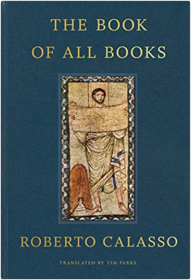 The Celestial Hunter 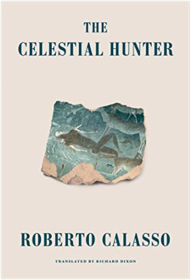 The Forty-nine Steps 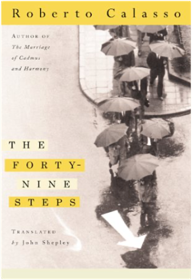 The first treatment of contemporary thought by the acclaimed cultural critic. In books lauded as "brilliant,"* "exhilarating,"** and "profound,"*** Roberto Calasso has revealed the unexpected intersections of ancient and modern through topics ranging from Greek and Indian mythology to what a legendary African kingdom can tell us about the French Revolution. In this first translation of his most important essays, Calasso brings his powerful intellect and elegant prose style to bear on the essential thinkers of our time, providing a sweeping analysis of the current state of Western culture. "Forty-nine steps" refers to the Talmudic doctrine that there are forty-nine steps to meaning in every passage of the Torah. Employing this interpretive approach, Calasso offers a "secret history" of European literature and philosophy in the wake of Nietzsche, Marx, and Freud. Calasso analyzes how figures ranging from Gustav Flaubert, Gottfried Benn, Karl Kraus, Martin Heidegger, Walter Benjamin, Franz Kafka, Bertolt Brecht, and Theodor Adorno have contributed to, or been emblematic of, the current state of Western thought. The book's theme, writ large, is the power of fable-specifically, its persistence in art and literature despite its exclusion from orthodox philosophy. In its breadth and the nature of its concerns, The Forty-nine Steps is a philosophical and literary twin to the widely-praised The Marriage of Cadmus and Harmony. Combining erudition with engaging prose and original insights, Calasso contributes a daring new interpretation of some of the most challenging writers of the past 150 years. Roberto Calasso is the author of The Marriage of Cadmus and Harmony (1993), The Ruin of Kasch (1994), Ka (1998), and Literature and the Gods (2000). He is the publisher of Adelphi Edizioni and lives in Milan. John Shepley is a freelance writer and translator who lives in New York City. His translation of Pasolini's Roman Nights and Other Stories won the first Italo Calvino Translation Award in 1987. Ka: Stories of the Mind and Gods of India 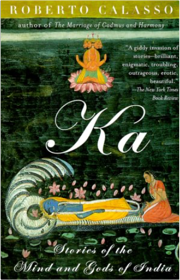 La Folie Baudelaire 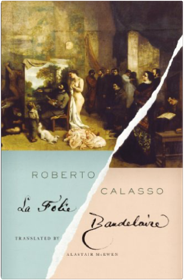 In the eighteenth century, a Folie was a garden pavilion set aside for people of leisure, a place of delight and fantasy. Following Baudelaire, Calasso has created a brilliant and dramatic “Folie Baudelaire”—a place where the reader can encounter the poet himself, his peers, his city, and his extraordinary likes and dislikes, finally discovering that that places is situated in the middle of the land of “absolute literature.” Literature and the Gods 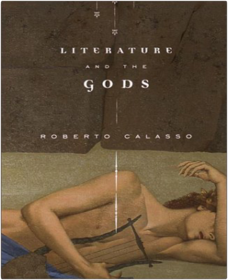 Calasso sets out to uncover the divine— godly or otherwise—in specific texts, and finds it in what he calls "absolute literature." With its roots in early Vedic verse, absolute literature reached the apex of its expression during the period beginning with the German Romantics in 1798 and ending with Mallarmé's death in 1898. But Calasso also discovers the divine in the work of Valéry, Auden, Yeats, Montale, Borges, and Nabokov, and he reveals how these writers, in their own very particular ways, were articulating the same unnameable thing. Finally, he delineates the timeless, ever-mysterious laws that surround the creative act itself. With Literature and the Gods, Roberto Calasso profoundly deepens our understanding of our literary tradition. It is, itself, a literary masterpiece. The Marriage of Cadmus and Harmony  From the Trade Paperback edition. The Ruin of Kasch 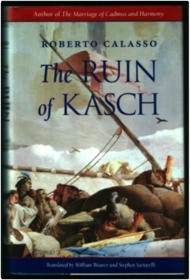 The Tablet of Destinies 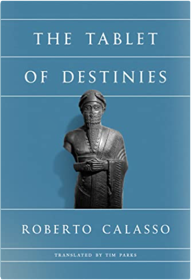 Tiepolo Pink 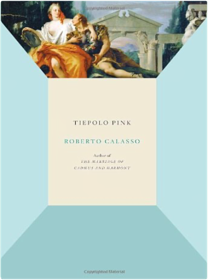 K. 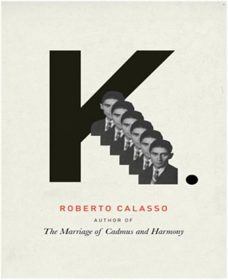 |


Delicious Library
Collection Total:
3,640 Items
3,640 Items
Last Updated:
Nov 2, 2025
Nov 2, 2025
 Made with Delicious Library
Made with Delicious Library